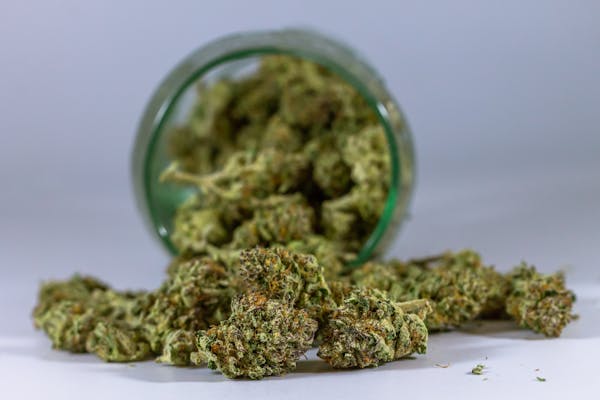Explore THCa Flower for Wellness: Key Benefits Revealed
In recent years, the interest in cannabis and its derivatives has surged, with many seeking natural alternatives for wellness. Among the various compounds found in cannabis, THCa (tetrahydrocannabinolic acid) has gained attention for its potential health benefits THCa flower deals. This article delves into the world of THCa flower, exploring its properties and how it may contribute to overall well-being.
Understanding THCa: The Basics
THCa is a non-psychoactive cannabinoid found in raw and live cannabis plants. Unlike THC, which is known for its psychoactive effects, THCa does not produce a “high.” This makes it an attractive option for those looking to experience the therapeutic benefits of cannabis without the mind-altering effects.
How THCa Differs from THC
THCa and THC are chemically similar, but they differ in their effects on the body. THCa is the precursor to THC. When cannabis is heated through smoking, vaping, or cooking, THCa undergoes decarboxylation, converting into THC. This process is what activates the psychoactive properties of cannabis.
- THCa is non-psychoactive.
- THC is psychoactive and responsible for the “high.”
- Decarboxylation transforms THCa into THC.
Potential Health Benefits of THCa
Research into THCa flower is still in its early stages, but preliminary studies and anecdotal evidence suggest several potential health benefits. Here are some of the key areas where THCa may offer support:
Anti-Inflammatory Properties
Inflammation is a common underlying factor in many chronic diseases. THCa has shown promise as an anti-inflammatory agent, potentially helping to reduce inflammation and alleviate symptoms associated with conditions like arthritis and inflammatory bowel disease.
Neuroprotective Effects
Studies suggest that THCa may have neuroprotective properties, which could be beneficial for individuals with neurodegenerative disorders such as Alzheimer’s and Parkinson’s disease. By protecting nerve cells from damage, THCa may help slow the progression of these conditions.
Antiemetic Benefits
Nausea and vomiting are common side effects of chemotherapy and other medical treatments. THCa has been reported to have antiemetic properties, making it a potential option for those seeking relief from these symptoms.
Pain Relief
Chronic pain affects millions of people worldwide, often leading to a reduced quality of life. THCa may offer pain-relieving benefits, providing a natural alternative to traditional pain medications.
Case Studies and Research
While research on THCa is still emerging, several studies and case recccccccports highlight its potential benefits:
- A 2013 study published in the British Journal of Pharmacology found that THCa exhibited anti-inflammatory properties in animal models.
- In a 2017 study, researchers observed that THCa had neuroprotective effects in a model of Huntington’s disease.
- Anecdotal reports from patients using THCa-rich cannabis products have noted improvements in symptoms such as pain, nausea, and inflammation.
How to Use THCa Flower
For those interested in exploring THCa flower, there are several methods of consumption that preserve its non-psychoactive properties:
Juicing Raw Cannabis
Juicing raw cannabis leaves and flowers is a popular method for consuming THCa. This approach allows individuals to benefit from the cannabinoid without the psychoactive effects of THC.
Topical Applications
THCa-infused creams and balms can be applied directly to the skin, providing localized relief for pain and inflammation without entering the bloodstream.
Tinctures and Capsules
THCa tinctures and capsules offer a convenient way to incorporate this cannabinoid into a daily wellness routine. These products are typically made from raw cannabis and are designed to be taken orally.
Legal Considerations
The legal status of THCa varies by region, as it is often classified under the same regulations as THC. It’s important for consumers to be aware of local laws and regulations regarding cannabis and its derivatives.
Conclusion
THCa flower presents an intriguing option for those seeking natural wellness solutions. With its potential anti-inflammatory, neuroprotective, antiemetic, and pain-relieving properties, THCa offers a range of benefits without the psychoactive effects of THC. As research continues to unfold, THCa may become a valuable component of holistic health practices. For individuals interested in exploring this cannabinoid, understanding its properties and potential applications is a step toward informed and mindful wellness choices.
